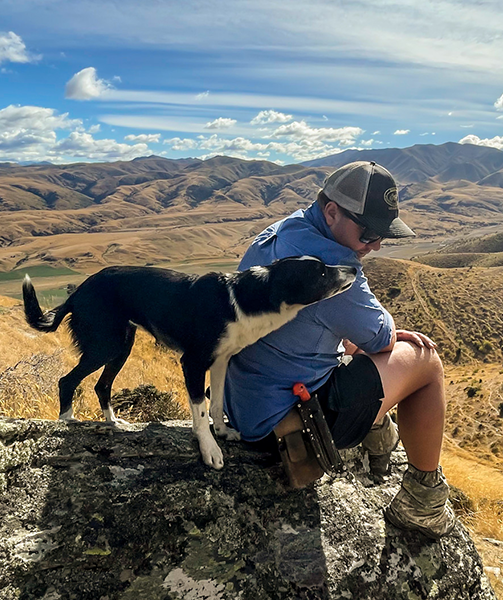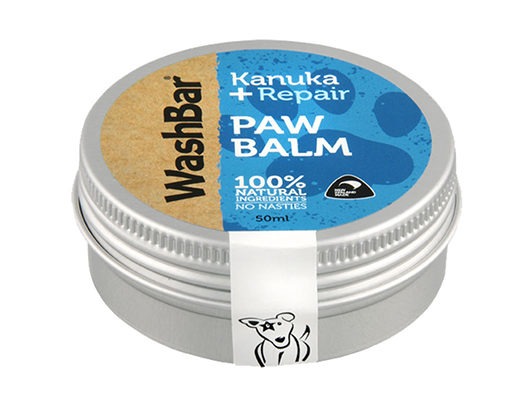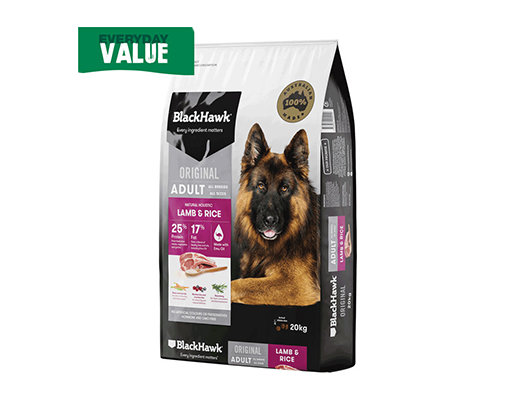CARING FOR YOUR CANINE IN THE COLD
Words by Tiffany Menzies
In winter, taking care of your dog is especially important, whether they’re used for farm work, hunting and sports, or they’re a family pet. We talked to Tiffany Menzies, in-house vet at Farmlands, about the necessary measures to ensure your dog stays warm, healthy, and happy during the colder months, whatever their vacation.
When taking care of your dog, their age, life-stage and of course breed - which determines a dog’s size – impacts their exercise and nutritional needs. You must remember too, the need for mental stimulation and environmental enrichment. One of the most important responsibilities a dog owner has is to provide a kennel that is warm, dry, and elevated to prevent contact with parasites.
“Kennels should be right for the dog’s breed and size. Draught-free but ventilated and insulated to provide warmth in winter but still cool in summer, and kept clean,” Tiffany says.
When it comes to older dogs, extra warmth is necessary as colder temperatures can have adverse effects on any arthritic joints. Additionally, supportive bedding should be provided to help alleviate pressure on bony prominences like elbows and hips.
“If it's colder or they’re working hard they may need to eat more as well,” Tiffany adds. “Monitor their weight and check that they're not losing it, particularly through that winter period.”
“A balanced diet that provides the correct levels of vitamins, minerals and quantity of nutrients suitable for the dog’s requirements is also essential, along with access to fresh water at all times. This is especially important for a young growing pup to avoid overfeeding or inducing any mineral/nutrient imbalances which can lead to developmental problems, particularly of bones and joints.”
“If they're working out in the snow just keep an eye that they're not getting too cold. Usually if they are out being active, their muscles will be generating that heat internally, but keep an eye on how they are going in really cold conditions and don’t overdo it.”
Particularly for farm dogs, Tiffany emphasises the importance of preventing access to raw carcasses that may lead to tape worms and sheep measles. It's vital to ensure that the animals are regularly dewormed, she adds.
In addition to consulting with informed members of the Farmlands team, Tiffany suggests that dogs receive annual health evaluations from their veterinarian and that owners ensure that dogs’ vaccinations are current.
Regular flea treatment and worming are also advised and Farmlands has a range of these treatments available, including flea treatments from Pet Science & Evance and worm treatments from Aristopet and Drontal. You can also find products such as dog kennels, bedding, jackets and leads in-store. It’s also important to keep dogs from accessing any toxins, with particular care taken at this time of year when rat baits are in use, as well as other poisons and products used for controlling pests.
Regardless of whether the animal is a busy working dog, or a pampered family pet, all dogs need to be kept physically and mentally stimulated. “Even on those days off it's important to let them out of their kennel, and give them a bit of a run-around with the opportunity to go the toilet.”
She adds that exercising a young dog needs to be done carefully, especially with a large breed dog, to avoid joint damage which can lead to issues later in life. Tiffany advises that, if possible, owners should avoid letting their dogs swim in dirty water, especially flood or stormwater runoff which can be quite contaminated. If it is impossible to deter them from bathing in the filthiest of puddles, it’s a good idea to give them a thorough washdown afterwards to remove any contaminants from their haircoats.
It’s also recommended that owners keep an eye on their dogs’ paws and pads to ensure they are staying in top condition, particularly if they have been walking on rough surfaces for an extended period or out for prolonged periods in really icy conditions. “Paws and pads are at risk of injury when jumping fences or gates, or getting grass seeds in the wrong places,” she says.
Another thing to keep in mind in winter, and all year around, is how best to safely transport your dog. “Unless in the process of actively working on farm, it is advisable to make sure all dogs are safely secured when in/ on a moving vehicle so they’re safe from injury or misadventure,” says Tiffany.
By taking extra precautions to ensure warmth, hydration, and adequate exercise and nutrition, as well as utilising winter-specific pet gear and being mindful of winter hazards, dog-owners can ensure their dogs are kept safe and healthy during the colder months.




